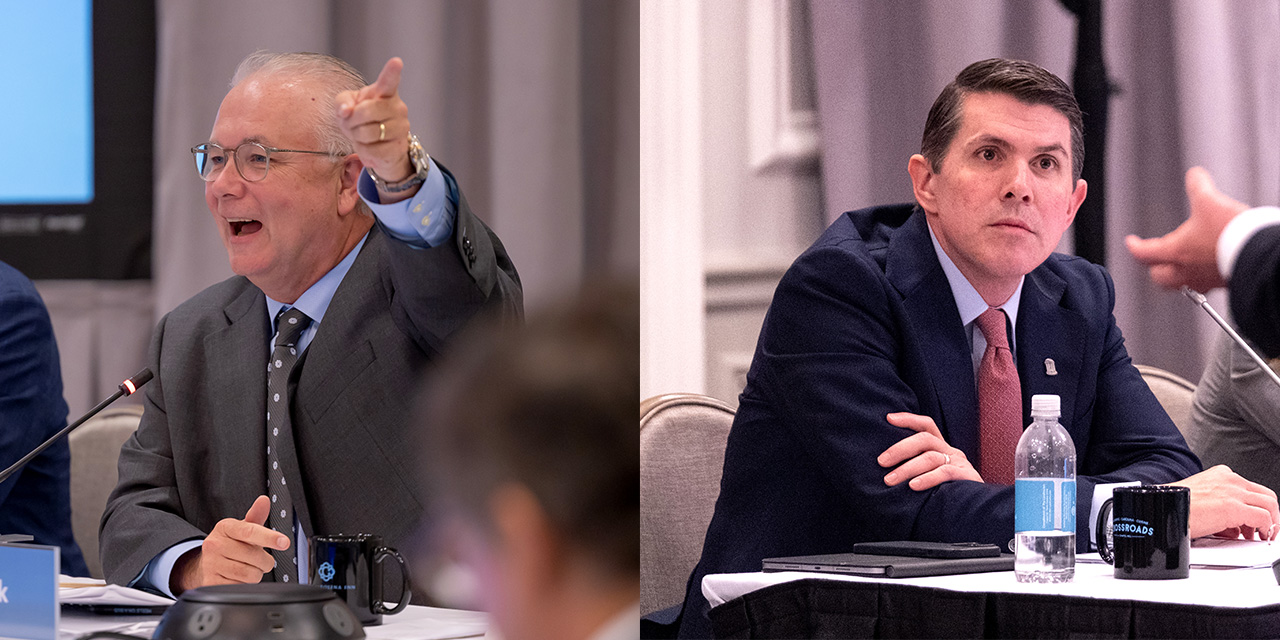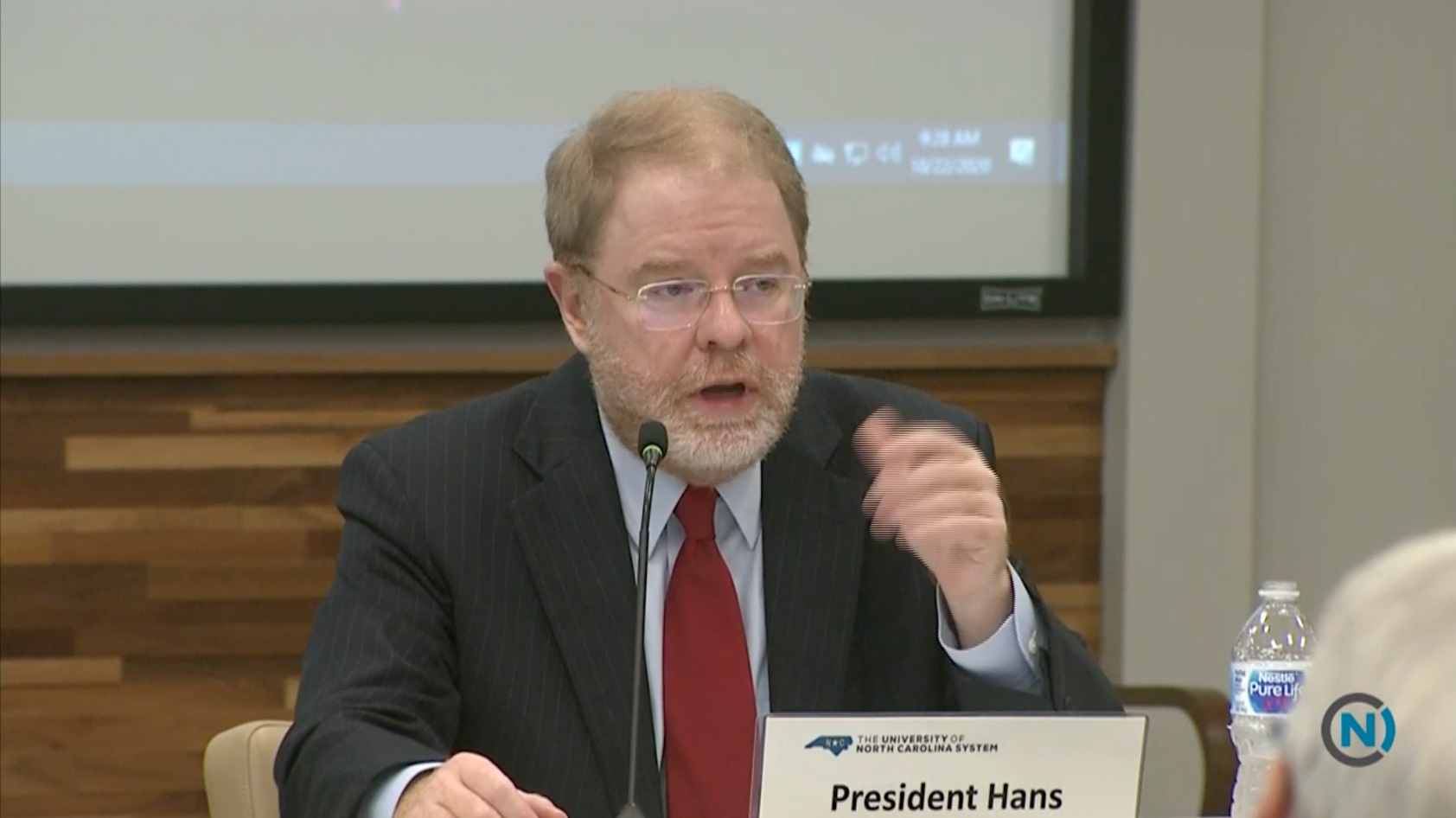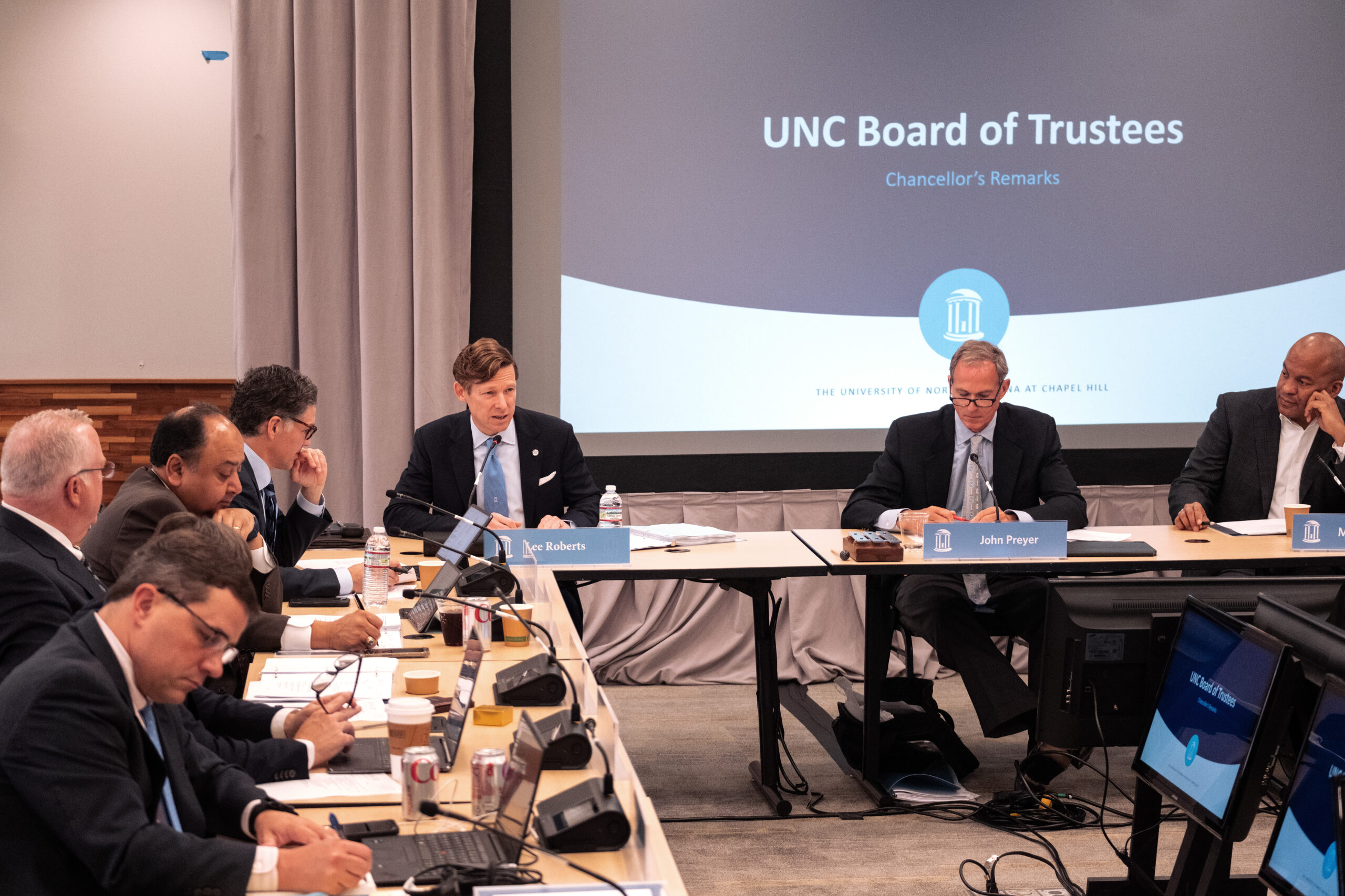The future of the UNC Center for Civil Rights is unclear after a proposal was filed to ban lawyers at the center from litigation.
The Educational Planning, Policies and Programs Committee of the board debated the proposal earlier this month, and has requested reports from UNC and North Carolina Central University before making a decision.
The center’s managing attorney Mark Dorosin said it’s important for the center to continue to do the things it was founded to do in 2001.
“One is educating the public—public policy research and training,” he said. “The second is training law students to become civil rights and public interest lawyers and the third has been representing individuals, families and communities trying to address the continuing legacy of segregation and discrimination in this state.”
The center has done work that relates to race, education and voting rights. Earlier this month, a voting rights case was filed in Jones County, and Dorosin said the center assisted in research for it. He said it will be impossible to do those things if the center can no longer participate in legal action.
“This policy, if it was approved, would prohibit that,” he said. “And in fact, it may have been in part motivated by that very situation.”
The proposal was filed by board member Joe Knott. But board member and supporter of the proposal, Steve Long said all UNC centers should focus solely on education, and shouldn’t be able to sue the state, according to the News and Observer.
But Dorosin said a sector of the school suing the state is hardly out of the ordinary.
“School boards sue county commissioners, cities sue counties, the legislature sues cities as we’ve seen, the governor sues the legislature and vice versa,” he said.
He also said the center doesn’t receive any money from the state.
“All the money that supports our advocacy is raised privately through grants, foundations, private donations and so the resources we’re using to represent our clients are not state funds,” Dorosin said. “But ironically, since they’re often going against government agencies, our clients who are also tax-payers are paying for the lawyers that are working against them.”
Dorosin said the chancellors from both universities are expected to present their findings at the July board meeting in Asheville.
Related Stories
‹
![]()
UNC BOG to Hold Center for Civil Rights Public HearingThe future of the UNC Center for Civil Rights is unclear, after a proposal was filed to ban its lawyers from litigation. The Educational Planning, Policies and Programs committee of the UNC Board of Governors debated the proposal in March, and requested reports from both UNC and North Carolina Central University before making its decision. […]
![]()
UNC BOG Considering Future for UNC Center for Civil Rights LitigationUNC Board of Governors member Joe Knott proposed a ban on litigation for the UNC Center for Civil Rights, and said there should be a distinction between the law school’s legal clinics that provide education to students. The Educational Planning, Policies and Programs Committee debated the proposal and voted to do more research before making […]
![]()
Judge Blocks Civil Rights Lawyers, UNC Students Efforts to Intervene in Silent Sam DealAn Orange County judge will not let students intervene in a settlement that gave a Confederate heritage group money to preserve a monument that protesters tore down at North Carolina’s flagship public university. Judge Allen Baddour ruled that the University of North Carolina students represented by the Lawyers’ Committee for Civil Rights Under Law lacked […]
![]()
Civil Rights Center Advocates Eye BOG MeetingThe Board of Governors is not slated to vote on the UNC Center for Civil Rights, but advocates aren't convinced it won't happen.
![]()
Supporters of UNC Center for Civil Rights Appeal to Board of GovernorsA much-anticipated public hearing on the future of the UNC Center for Civil Rights was held on Thursday. Advocates for the UNC Center for Civil Rights with yellow arm bands packed a board room at the UNC Center for School Leadership Development on Thursday supporting the work of the center. A proposal was put forward […]
![]()
State NAACP Rallies for UNC Center for Civil Rights Ahead of Public HearingPeace and Justice Plaza has a history of housing protests throughout history, and it was once again on Wednesday afternoon. The Chapel Hill – Carrboro chapter of the NAACP, in conjunction with the state branch, were joined by members of the UNC Center for Civil Rights in front of the Post Office in Chapel Hill […]

UNC System Chooses Kenan-Flagler Alum, Former Domino's CEO as Latest UNC-Chapel Hill TrusteeRitch Allison — who was formally selected Thursday by the UNC System — will fill the Board of Trustees seat left vacant by Dave Boliek.

Pair of UNC Trustees Elected to State Office; Here's What Happens Next for the BoardThe next time the UNC Board of Trustees meetings in January, the group may have new faces joining its ranks after a pair of imminent resignations.

Here's What UNC President Peter Hans Said About Picking Lee Roberts to Lead UNC-Chapel HillThe UNC Board of Governors approved Lee Roberts to take off the ‘interim’ tag to his role as chancellor of UNC-Chapel Hill on Friday. The vote by the board came after UNC System President Peter Hans nominated Roberts and gave an extended speech on the selection process, Roberts’ approach to leadership, and his own vision […]

Board of Governors Set Friday Meeting to Elect New UNC ChancellorThe search for the next permanent UNC chancellor is coming to a close, as the UNC Board of Governors will hold a special meeting on Friday.
›





